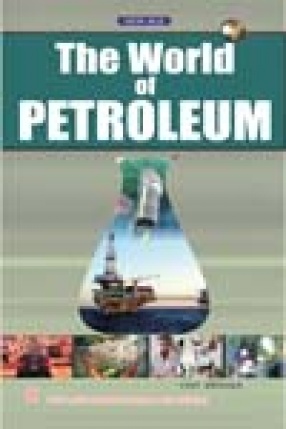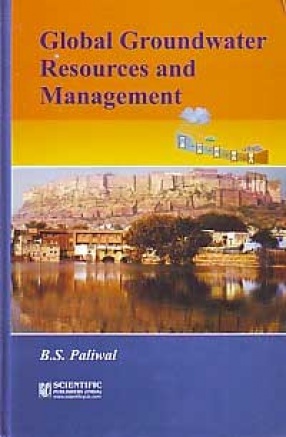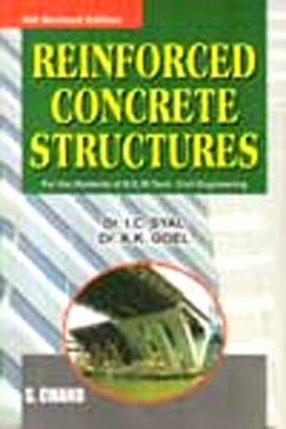Energy is perhaps a country`s most vital need. Without energy nothing will move. It is recognised that the common fossil fuels, like coal and petroleum, are exhaustible assets; once consumed they do not grow again. Hence there is global realisation that if we are not careful and farsighted about the use of these fuels, we may well run out of them in not very distant future. Of the two, petroleum is more efficient and useful fuel. A very wide range of products are derived from oil and natural gas, and hence these are preferred as raw material for petrochemical industries. It is necessary that the common man knows how geologists and geophysicists look for deposits of oil and gas in the bowels of earth, how are these recovered and how can we use our deposits efficiently by adopting modern techniques .
The book highlights the trials and tribulations of exploration and production of oil and gas, in different parts of the world, under different geological, ecological conditions. Oil and gas occur under varying conditions of terrain, depth, pressure, temperature, etc. Exploration involves several disciplines to speculate where oil-pools could be located in depth. Off-shore exploration, which is on the increase, involves greater risk, besides being several times more expensive than exploration on land. Every year we are drilling in greater and greater depths of off-shore waters, under very hostile weather conditions.
When a field shows signs of depletion, or sometimes even earlier, secondary methods of production are adopted. These are designed to get as much oil from the reservoir as possible. This may appear simple, but it involves the use of the latest technology in production operations.
Once oil and gas are sent to the refineries or petrochemical factories, the latest chemical technologies are employed to obtain various products having a wide range of uses. The variety of petrochemical products derived from oil and gas is astounding. These topics find due space in this volume.
The book also deals with the pollution due to the oil industry as the hazard of blow-outs, the leakages of oil and gas from pipe-lines and the extensive spills from damaged ships and storages are matters of grave concern to the society.
The future of the oil industry is yet another enigma. Are we really coming to the end of the world`s resources of oil and gas? The book offers views on this subject. Its language is simple except for the occasional unavoidable use of technical terms and concepts. It is hoped that the reader will find the contents interesting.
Energy is perhaps a country`s most vital need. Without energy nothing will move. It is recognised that the common fossil fuels, like coal and petroleum, are exhaustible assets; once consumed they do not grow again. Hence there is global realisation that if we are not careful and farsighted about the use of these fuels, we may well run out of them in not very distant future. Of the two, petroleum is more efficient and useful fuel. A very wide range of products are derived from oil and natural gas, and hence these are preferred as raw material for petrochemical industries. It is necessary that the common man knows how geologists and geophysicists look for deposits of oil and gas in the bowels of earth, how are these recovered and how can we use our deposits efficiently by adopting modern techniques .
The book highlights the trials and tribulations of exploration and production of oil and gas, in different parts of the world, under different geological, ecological conditions. Oil and gas occur under varying conditions of terrain, depth, pressure, temperature, etc. Exploration involves several disciplines to speculate where oil-pools could be located in depth. Off-shore exploration, which is on the increase, involves greater risk, besides being several times more expensive than exploration on land. Every year we are drilling in greater and greater depths of off-shore waters, under very hostile weather conditions.
When a field shows signs of depletion, or sometimes even earlier, secondary methods of production are adopted. These are designed to get as much oil from the reservoir as possible. This may appear simple, but it involves the use of the latest technology in production operations.
Once oil and gas are sent to the refineries or petrochemical factories, the latest chemical technologies are employed to obtain various products having a wide range of uses. The variety of petrochemical products derived from oil and gas is astounding. These topics find due space in this volume.
The book also deals with the pollution due to the oil industry as the hazard of blow-outs, the leakages of oil and gas from pipe-lines and the extensive spills from damaged ships and storages are matters of grave concern to the society.
The future of the oil industry is yet another enigma. Are we really coming to the end of the world`s resources of oil and gas? The book offers views on this subject. Its language is simple except for the occasional unavoidable use of technical terms and concepts. It is hoped that the reader will find the contents interesting.
ABOUT THE AUTHOR B G Deshpande
B.G. Deshpande: After his Masters degree in Geology in 1936, the author joined the Geological Survey of India at Kolkata. He was initiated in the various aspects of Petroleum Geology when he was deputed to the Assam Oil Company at Digboi, India, in 1939. In 1952 he joined the Indian Bureau of Mines and in 1956, the Oil and Natural Gas Commission (O.N.G.C.). He has varied experience in almost all branches of Geology, especially Hydrogeology, Petroleum Geology and Engineering Geology. In 1945 he went to the University of Melbourne, Australia for Postgraduate studies. He obtained his Ph.D. from the University of Poona in 1953.
In 1970 he joined the University of Poona as Professor and Head of Geology Department. Between 1977 and 1983 he was Professor of Geology at the University of Dares Salaam, Tanzania.
A Fellow of the Indian National Science Academy and a Founder Fellow of the Maharashtra Academy of Science, he is associated with several Indian scientific bodies in the field of earth sciences like the Geological Society of India, Indian Society of Earthquake Technology, Roorkee, the Association of the Geoscientists for International Development (A.G.I.D.).
In the O.N.G.C. he was involved in all aspects of geological exploration, drilling and production of oil and gas in various parts of India in particular in the Cambay Basin where oil was discovered for the first time.
A widely travelled scientist, he attended five World Petroleum Congresses at New York, Frankfurt, Mexico City, Moscow and Tokyo, besides attending several other National and International Conferences on geology, petroleum and earthquakes. He also attended the International Conferences on Biophysical Precursors of Earthquakes in Naples in 1988 and Udine in 1989.
Recently, he published a book Earthquakes, Animals and Man (1988) and has contributed several scientific papers in Indian and Foreign journals. He was president of the Geology Section of the Indian National Congress in 1971. Presently he is Hon. Professor of Geology with the Maharashtra Association for the Cultivation of Science, Pune.





There are no reviews yet.